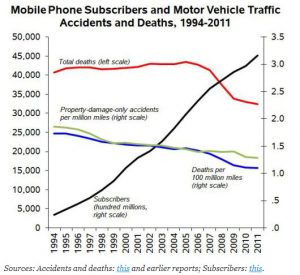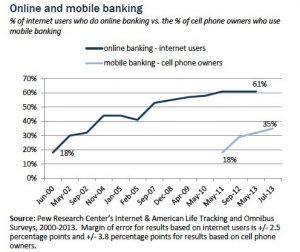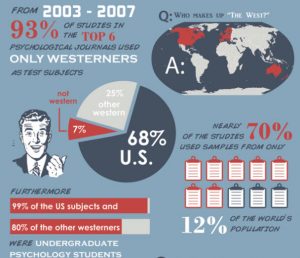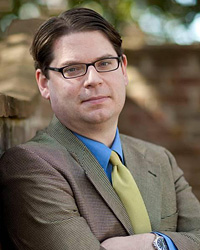How Jewish Americans answer the question "What is the most important Jewish holiday to you personally?" varies considerably depending on the generation of the respondent. More specifically, according to a poll conducted by the Public Religion Research Institute older Jewish Americans (age 60+) and younger Jewish Americans (ages 18-29) answered the question quite differently. Older Yom Kippur - 53% Passover - 24% Rosh Hashanah - 9%, which tied with other - 9% Hanukah - Read More …
Trends
Social Media & Approaching Death (#1164)
Paul Bisceglio, a freelance journalist who edits the literary digital magazine Land that I Live, recently wrote an article in The Atlantic suggesting that social media is changing how people approach death. While the proliferation of social media and increasing use of such to speak about personal experiences with end of life is easily documented, how this shift will impact how people view death and dying is not yet known. So What? As people of faith, we have always viewed death Read More …
Too Many Books? (#1163)
Michael Hyatt is the former Chairman and CEO of Thomas Nelson Publishers, the seventh largest trade book publishing company in the U.S. Additionally, he has worked in the book publishing industry nearly all of his adult life. His own writing has been well received with two of his eight books landing on the New York Times bestseller list. Given his knowledge of the industry, his recent blog post questioning the number of books now being published deserves Read More …
Exercising While Preaching?! (#1160)
I have heard more than my fair share of strange preaching habits over the years, but nothing that I can place in the same category as the exercising preacher. Chris Townsend, pastor of Emanuel Lutheran Church (Lodi, CA), believes he is the first pastor to regularly deliver his sermon while exercising. So far he has preached using a yoga ball, riding a stationary bike, and even while walking on a treadmill. So What? Townsend was inspired by members of his congregation to work on his Read More …
Cell Phones & Traffic Fatalities (#1158)
Philip Cohen, a sociologist at the University of Maryland, recently encouraged his readers to struggle with the topic of cell phones and their role in making the roads a safer or more dangerous place for those traveling in motor vehicles. After mentioning "a powerful new documentary by Werner Herzog is making the rounds (presented by the phone companies), showing the consequences of accidents caused by phone-distracted driving," Cohen goes on to explore what the data Read More …
Most Americans Bank Online (#1154)
According to a survey conducted by the Pew Research Center in April and May, the majority of Americans now bank online. More specifically: 51% of U.S. adults, or 61% of internet users, bank online; and 32% of U.S. adults, or 35% of cell phone owners, bank using their mobile phones. So What? Over the last several years more and more people have joined the online world. In general, the adoption rates are highest among the youngest adults. While the percentages decline as Read More …
North American Christianity is Broken (#1149)
New York Times best selling author Frank Schaeffer, recently wrote a strong critique of both the evangelical and progressive forms of Protestant Christianity in North America in which he claims that "The problem with North American Christianity is not the window-dressing– it’s the whole package." So What? Like Schaeffer, I believe the current trend of decline among Protestants in North America signals that Protestant Christianity as we have known it for the last hundred years has major Read More …
WEIRD Western Bias (#1146)
The global community includes an incredibly diverse population of humans, yet people often wrongly assume that every culture is similar to their own. Surprisingly this erroneous assumption appears even in research published in the top psychological journals. Robert Gonzales explains: The vast majority of psychological studies recruit test subjects who are Western, educated, industrialized, rich and democratic – or "WEIRD." Which is... well, weird, given that Read More …
Church without God (#1145)
Dan Merica's recent post, "Church without God - by design," explores gatherings of the Humanist Community at Harvard University, which is the brainchild of the school's Humanist chaplain: Greg Epstein. After meeting for the last several years in a "small three-floor walk-up off the bustling streets of Harvard Square," the community will transition to "a nearly 3,000-square-foot community center with an event space for nearly 100 people." So What? Epstein sees the transition in Read More …
Fatherhood: Churches over Bars (#1144)
University of Virginia sociologist W. Bradford Wilcox, recently wrote an article that overviews how fatherhood transforms men. These changes, however, do not impact all fathers equally. In reality, the positive changes associated with fatherhood apply only for men who live with or in close proximity to their child(ren). Those fathers who do not live with their children consistently share more in common with childless men. Fathers who live with their children are Read More …









